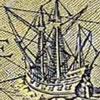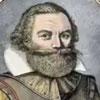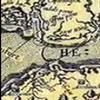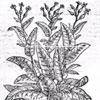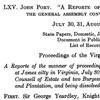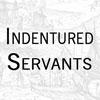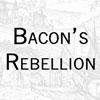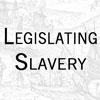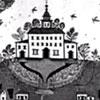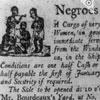Economic and social power became concentrated in late 17th-century Virginia, leaving laborers and servants with restricted economic independence. Governor William Berkeley feared rebellion: “six parts of Seven at least are Poore, Indebted, Discontented and Armed.” Planter Nathaniel Bacon focused the anger of inland colonists at local Indians, who they felt were holding back settlement, and at a distant government unwilling to aid them.
Declaration of Nathaniel Bacon in the Name of the People of Virginia, July 30, 1676
1. For having, upon specious pretenses of public works, raised great unjust taxes upon the commonalty for the advancement of private favorites and other sinister ends, but no visible effects in any measure adequate; for not having, during this long time of his government, in any measure advanced this hopeful colony either by fortifications, towns, or trade.
2. For having abused and rendered contemptible the magistrates of justice by advancing to places of judicature scandalous and ignorant favorites.
3. For having wronged his Majesty’s prerogative and interest by assuming monopoly of the beaver trade and for having in it unjust gain betrayed and sold his Majesty’s country and the lives of his loyal subjects to the barbarous heathen.
4. For having protected, favored, and emboldened the Indians against his Majesty’s loyal subjects, never contriving, requiring, or appointing any due or proper means of satisfaction for their many invasions, robberies, and murders committed upon us.
5. For having, when the army of English was just upon the track of those Indians, who now in all places burn, spoil, murder and when we might with ease have destroyed them who then were in open hostility, for then having expressly countermanded and sent back our army by passing his word for the peaceable demeanor of the said Indians, who immediately prosecuted their evil intentions, committing horrid murders and robberies in all places, being protected by the said engagement and word past of him the said Sir William Berkeley, having ruined and laid desolate a great part of his Majesty’s country, and have now drawn themselves into such obscure and remote places and are by their success so emboldened and confirmed by their confederacy so strengthened that the cries of blood are in all places, and the terror and consternation of the people so great, are now become not only difficult but a very formidable enemy who might at first with ease have been destroyed.
6. And lately, when, upon the loud outcries of blood, the assembly had, with all care, raised and framed an army for the preventing of further mischief and safeguard of this his Majesty’s colony.
7. For having, with only the privacy of some few favorites without acquainting the people, only by the alteration of a figure, forged a commission, by we know not what hand, not only without but even against the consent of the people, for the raising and effecting civil war and destruction, which being happily and without bloodshed prevented; for having the second time attempted the same, thereby calling down our forces from the defense of the frontiers and most weakly exposed places.
8. For the prevention of civil mischief and ruin amongst ourselves while the barbarous enemy in all places did invade, murder, and spoil us, his Majesty’s most faithful subjects.
Of this and the aforesaid articles we accuse Sir William Berkeley as guilty of each and every one of the same, and as one who has traitorously attempted, violated, and injured his Majesty’s interest here by a loss of a great part of this his colony and many of his faithful loyal subjects by him betrayed and in a barbarous and shameful manner exposed to the incursions and murder of the heathen. And we do further declare these the ensuing persons in this list to have been his wicked and pernicious councilors, confederates, aiders, and assisters against the commonalty in these our civil commotions.
Sir Henry Chichley
Lieut. Coll. Christopher Wormeley
William Sherwood
John Page Clerke
John Cluffe Clerke
John West
Hubert Farrell
Thomas Reade
Matthew Kempe
William Claiburne Junior
Thomas Hawkins
Phillip Ludwell
Robert Beverley
Richard Lee
Thomas Ballard
William Cole
Richard Whitacre
Nicholas Spencer
Joseph Bridger
John West, Hubert Farrell, Thomas Reade, Math. Kempe
And we do further demand that the said Sir William Berkeley with all the persons in this list be forthwith delivered up or surrender themselves within four days after the notice hereof, or otherwise we declare as follows.
That in whatsoever place, house, or ship, any of the said persons shall reside, be hid, or protected, we declare the owners, masters, or inhabitants of the said places to be confederates and traitors to the people and the estates of them is also of all the aforesaid persons to be confiscated. And this we, the commons of Virginia, do declare, desiring a firm union amongst ourselves that we may jointly and with one accord defend ourselves against the common enemy. And let not the faults of the guilty be the reproach of the innocent, or the faults or crimes of the oppressors divide and separate us who have suffered by their oppressions.
These are, therefore, in his Majesty’s name, to command you forthwith to seize the persons above mentioned as traitors to the King and country and them to bring to Middle Plantation and there to secure them until further order, and, in case of opposition, if you want any further assistance you are forthwith to demand it in the name of the people in all the counties of Virginia.
Nathaniel Bacon
General by Consent of the people.
William Sherwood
In the summer and fall of 1676, Bacon and his supporters rose up and plundered the elite’s estates and slaughtered nearby Indians. Bacon’s Declaration (in full text here) challenged the economic and political privileges of the governor’s circle of favorites, while announcing the principle of the consent of the people. Bacon’s death and the arrival of a British fleet quelled this rebellion, but Virginia’s planters long remembered the spectacle of poor whites and blacks acting together to challenge authority.
Source: Nathaniel Bacon, “Bacon’s Rebellion: The Declaration,” 1676, History Matters: The U.S. Survey Course on the Web. Original in Massachusetts Historical Society Collections, 4th ser., 1871, vol. 9: 184–87.



